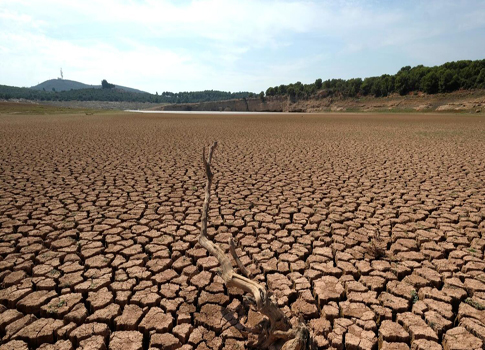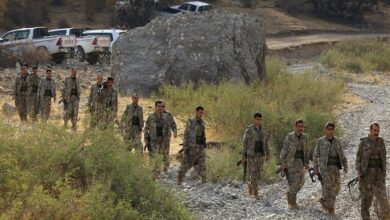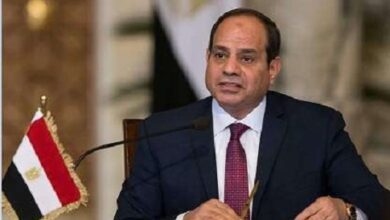Middle East, North Africa water crisis must be top of the agenda at COP28
Prince El Hassan Bin Talal of Jordan and Tabinda Sarosh

Water is life—yet the water crisis in the Middle East and North Africa continues to worsen without a viable solution in sight.
At the Conference of the Parties of the UNFCCC (COP28) in Dubai, we must come together and create a concrete, realistic, and consensual roadmap for the cooperative and productive management of water resources. This roadmap must be part of broader regional and international frameworks that save lives, increase equity, and ensure communities across the Middle East, North Africa — and the world — are able to adapt to climate change.
Middle East, North Africa water crisis must be top of the agenda at COP28
Although we have been facing a water crisis for years, the situation is becoming more severe, exacerbated by sustained climate change-induced droughts and extreme heat. Jordan is the second-most water scarce country in the world, following only Somalia. Among myriad water shortages across the region, discharge from the Euphrates River in Iraq and Syria dramatically dropped this year, Iran’s Lake Urmia is almost dry, and Egypt is facing severe water scarcity.
Most major groundwater sources in the region cross borders. A transboundary crisis of this magnitude requires a new era of regional cooperation, where we move from resource competition to resource sharing, looking beyond the expediency of myopic political decisions in the interest of long-term resilience.
COP28 presents a perfect opportunity to commit to widespread water citizenship — fair ownership and loyalty toward water sources and infrastructure, the wise use of water resources, and the joining of efforts to achieve equitable access to water. For water citizenship to work, we must constantly measure and assess the state of our water supply. That’s why we need regional research hubs for collecting and sharing data, and translating science into evidence that can be applied by policymakers to develop smart water management policies.
Water is inherently linked to the conservation and management of energy, food, and entire ecosystems. Governments, academia, and international organisations must arrive at an evidence-based, shared understanding of these environmental concerns to develop integrated solutions. The Water, Energy, Food, and Ecosystem Nexus regional community of practice established by the Islamic Network on Water Resources Development and Management, which works on converting and merging science, technological, and industrial innovations into real-life improvements for citizens, is a great step in that direction.
Water is everyone’s concern, but its accessibility has direct and specific impacts on the health and well-being of women and girls. Women are most of the world’s food producers and are on the frontlines of caring for their families. This means they are often charged with ensuring water is in supply.
When there is no immediate access to water, girls miss school to fetch water for their families, and women’s time is usurped by water collection, hindering them from keeping a job. On their journey for water, they may be subjected to sexual and gender-based violence. Without potable water, their children can become sick from waterborne illness or malnourished without access to sufficient food.
Lastly, when there is too much financial hardship, girls pay the price. According to the last Sustainable Development Goal report, 110 million girls are likely to become child brides by 2030.
It is widely agreed that women’s prosperity drives healthier, more peaceful societies. We must account for the needs of women when we develop solutions and involve them in decisions about policies and programs that will inevitably have a huge effect on their lives. We must have more women around the decision-making table at COP28 and beyond.
Resilient health systems
While we work on putting in place solutions, we recognize that a crisis is already upon us. The water crisis and climate crisis as a whole demand that we strengthen health systems to address the many detrimental effects of climate change on health. It is critical that health systems remain resilient and ready to serve communities through shocks and stressors. Health clinics must have disaster preparedness plans in place and means to implement them. Depending on the context, these may include extreme heat protocols, strategies to address a rise in waterborne and vector-borne diseases, and ensuring essentials like backup power and water supplies, a surplus of medicines, and different modes of emergency transport.
A locally led, women-led solution
A great example of a program that does it all — empower women while strengthening health systems and responding to climate change — is led by Pathfinder International in Egypt. The programme transforms health clinics into “green” clinics that adopt environmentally friendly practices like water conservation, green waste disposal, and use of solar panels, while training health providers to combat the health risks of climate change. At the same time, women are supported to engage in eco-friendly businesses and act as “ambassadors of change” who mobilize for climate action in their communities. This work is led by local organizations who have the trust of communities and can play a significant role in sustained climate change mitigation and resilience initiatives.
Future at stake
A failure to address the water crisis and the climate crisis more broadly will inevitably result in regional conflicts over water, significantly hindering health and development and threatening the viability of entire nations. Changes in policy and strategy are needed locally, regionally, and globally to safeguard the futures of generations to come. Without drastic action today, climate change adaptation will be more difficult and costly tomorrow, and in our lifetimes, we will see multitudes of people without access to water — the most essential of all lifelines.
“text-align: left;”>Tabinda Sarosh is President, South Asia, Middle East, and North Africa, Pathfinder International.
KT NETWORK




